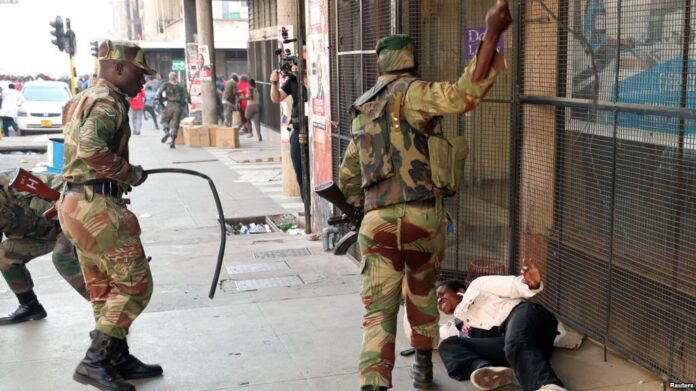Shamiso Ngwena
Government has been given a 45-day ultimatum by the Constitutional Court to come up with legislation to establish an Independent Complaints Mechanism legislation in accordance with Section 210 of the Constitution.
The case was brought to the Apex Court by Messrs Chironga and Mahiya in 2015 as they sought an order compelling government to gazette a bill for an Act of Parliament as envisaged by Section 210 of the Constitution of Zimbabwe.
Chironga and Mahiya were assisted by Veritas Zimbabwe who engaged lawyer Tendai Biti in the case whose respondents were Justice, Legal and Parliamentary Affairs minister and others.
Veritas provides information on the courts, Parliament and Zimbabwean laws while making public information widely available.
Section 210 of the Constitution states that an Act of Parliament must provide an effective and independent mechanism for receiving and investigating complaints from the public about misconduct of members of the security services.
It further states that they can also seek remedial action for any harm caused by such misconduct.
The judgement, according to Veritas, was important as there was need to control the exercise of public power while emphasizing the role of the courts to providing checks and balances on power.
Veritas said the Independent Complaints Mechanism should investigate and proffer remedial action on such incidents as the August 2018 killing of civilians by suspected soldiers.
It said the ICM should also look at the incidents of January 2019 where a crackdown by the security services led to allegations that soldiers beat up, abducted and killed some civilians.
The Independent Complaints Mechanism would provide “a progressive, invaluable accountability mechanism” to move Zimbabwe away from being a country where the security services acts with “impunity, and towards more genuine people-centred civilian democracy”.
According to the judgement, it is the courts’ “responsibility of holding our constitutional democracy together and giving hope to all our people that their constitutional aspirations will be realised and protected.”
“The need to control the exercise of public power, the rule of law and supremacy of the Constitution are core founding values of our constitutional democracy.
“Hence mechanisms to oversee how public power and State authority are exercised must be strengthened. Where the Constitution mandates that such mechanisms be put in place [as it does in Section 210] this must be done within a reasonable time in order to actualise the Constitution as a living document,” the judgement said.
It further said litigation to compel observance of the Constitution may entail the vindication of private rights while seeking to entrench legality and deepening the constitutional order to the benefit of the broader public.
Members of the security services allegedly killed 12 people after demonstrations swept across Zimbabwe with people protesting against rising economic rot and rising prices of basic commodities.
The incident was preceding a few months earlier when opposition political party supporters on August 1, 2018 took to the streets complaining about delays in the announcement of the Presidential poll results in the harmonised elections held the previous day.












